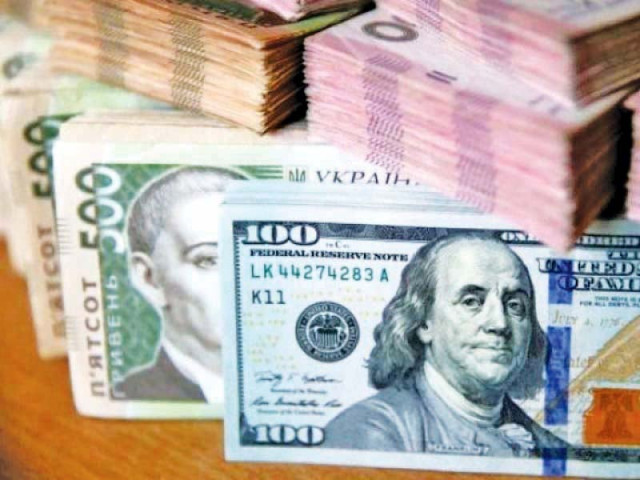World Bank sets tough loan terms
Finance ministry seeks three budget support loans totalling $1.5b before end of June

The World Bank has set tough conditions for $1.5 billion lending such as increase in electricity rates, introduction of new power and tax policies, putting the government in a tight spot that is already seeking a review of the International Monetary Fund (IMF) deal.
The finance ministry was seeking three budget support loans totalling $1.5 billion from the World Bank before the end of June, sources told The Express Tribune.
The loans are part of the overall $27 billion external financing requirement for the current fiscal year, said the finance ministry sources.
The government has requested the World Bank to provide $500 million each under the Resilient Institutions for Sustainable Economy (RISE-II), Securing Human Investments to Foster Transformation (SHIFT-II) and Programme for Affordable and Clean Energy (PACE), said the sources.
Outgoing Finance Minister Hammad Azhar on Friday chaired a meeting to review the status of conditions that the World Bank had proposed for giving the loans. In the absence of non-debt creating inflows, the government’s reliance on foreign loans is deepening and it has recently borrowed $2.5 billion by floating Eurobonds.
Resultantly, the State Bank of Pakistan’s $16 billion foreign currency reserves are the result of foreign loans, including $11 billion worth of lending by China in the shape of safe deposit and currency swap agreement. The only silver lining is the remittances from overseas Pakistani workers that are growing at a pace of 25%.
Some of the conditions that the World Bank has set are also part of the IMF programme, which the Fund revived three weeks ago, but the government now wants to renegotiate it.
Newly appointed Finance Minister Shaukat Tarin has already publicly stated that he would like to renegotiate the IMF deal. Sources said that the World Bank wanted to finalise the $500 million PACE programme ahead of the second series of RISE and SHIFT.
But the government was keen to prioritise RISE and SHIFT, as many of the prior actions were at the advanced stage of implementation, said the sources. For qualifying for these loans, Pakistan would have to increase electricity prices by Rs1.39 per unit in June and Rs2.21 per unit in July, said the sources. Both of these increases are also part of the IMF structural benchmarks.
But Prime Minister Imran Khan has recently opposed these tariff increases after approving them as part of the Circular Debt Management Plan, said the sources.
They said the government would also have to introduce a new National Electricity Policy, new Least Cost Power Generation Plan and subsidies phase-out plan.
PACE would tackle critical power sector reforms, by building on the foundations of RISE, to ensure the sector becomes financially viable, according to the World Bank documents.
The World Bank sees reduction in circular debt flow through reducing power generation costs, de-carbonising the energy mix, improving efficiency in distribution and re-targeting electricity subsidies.
Pakistani authorities were of the view that the government had already taken some major steps like amendments to the Nepra Act, which would ensure an automatic increase in quarterly electricity prices.
The government has also approved the Circular Debt Management Plan, which is aimed at reducing the debt through a combination of increase in electricity prices and reduction in line losses, said the sources.
They argued that the World Bank should consider these steps and should not focus on conditions like increase in electricity prices. Sources said that for $500 million RISE loan, the World Bank has set condition that provincial governments issue a notification adopting the Federal Board of Revenue (FBR) valuation tables applicable to Urban Immovable Property Taxes to keep the assessment ratios at 85% of market value.
Signing of performance contracts with the board and management of all power sector companies is also part of the RISE loan condition.
There is also a condition that the federal and provincial finance departments should issue implementing regulations following the approval of common GST laws passed by the federal and provincial assemblies to generate a harmonised GST for goods and services across the country.
According to another condition, the Finance Division would convert all bearer prize bonds into registered instruments through biometric identity verification; and the SECP will issue a notification on the establishment of secured transactions collateral registry to enhance SME access to finance.
For securing $500 million SHIFT loan, the provincial cabinets are required to approve a mechanism for a nationwide harmonisation of birth and death registration with the national civil registry at NADRA.
Ministry of Finance and provincial Finance Departments will also have to approve the inclusion of all remaining capital costs under the respective expanded program on immunisation into the recurrent budget.
Some of the IMF programme conditions like elimination of nonstandard preferential rates and tax exemptions, and bringing those goods to the standard rate of 17% are also part of the World Bank conditions for $1.5 billion lending.
The power secretary briefed the finance minister on Friday about the efforts being made for reformation of the power sector with a view to provide maximum relief to the electricity consumers, according to the Finance Ministry handout.


















COMMENTS
Comments are moderated and generally will be posted if they are on-topic and not abusive.
For more information, please see our Comments FAQ